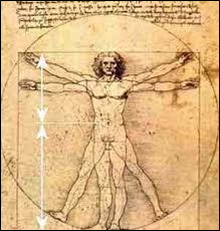 But God has so arranged the body, giving the greater honor to the inferior member, that there may be no dissension within the body, but the members may have the same care for one another. If one member suffers, all suffer together with it; if one member is honored, all rejoice together with it. –1 Corinthians 12:24-26 I beg you to lead a life worthy of the calling to which you have been called, with all humility and gentleness, with patience, bearing with one another in love, making every effort to maintain the unity of the Spirit in the bond of peace.
–Ephesians 4:1-3 May is the month in which our new Council will begin to review the 2020 Long-Range Plan, to determine what next steps we will take to continue to grow in our life together at Calvary. Many ministry tasks remain on our To-Do List, from developing new ministries to renovating building space. But before we do any heavy lifting—before we take on any new responsibilities—this may be a good time for a checkup: How are we doing in our life together? How is our “body”—our health as a church? When athletes enter a new season of play they are expected to go through a physical examination to establish a baseline for their health, and verify their fitness for play. So let’s take a look at ourselves. In Paul’s letter to the Corinthians (quoted above), he says that a “healthy body” is a church in which people practice empathy: when one person is in pain other members hurt with him, when someone is honored others rejoice with her. Members of a healthy body see each other’s challenges and joys and say, “I am with you.” But in order to practice this empathy, we also need to allow people room to be vulnerable enough to say when they are suffering, and enough latitude to divulge when they have something to be grateful for. This is what a healthy body looks like. So how are we doing? Paul takes this practice of empathy so seriously that he calls each of us to give greater honor to the “inferior” members of the body. Paul doesn’t name who is inferior, he simply puts the onus on each of us to behave with care so that the body of the church is working together, not being fractured. To act with care we serve each other—whether we are Council members or churchyard gardeners, janitors or doctors, mechanics or on disability, we are called to serve each other with equal compassion. Our calling is not to “step on toes,” but to wash feet. So how are we doing? In his letter to the Ephesians, Paul has more to say about what a healthy body of Christ looks like. Being the body together, he says, involves each of us practicing humility, gentleness, and patience. Acting humbly is related also to what Paul said earlier in 1 Corinthians: None of us should think that we are more important, or more essential to the body of Christ than another; in fact, we should measure our importance based on whether we treat other members with dignity and respect. For instance, are we more intent on being heard than listening? Do we ask questions of others only so we can have our own convictions heard? Or do we engage our brothers and sisters—asking, “How are you?”—with the actual purpose of listening to their honest (perhaps even uncomfortable) response? Gentleness and patience are a part of that humility, because as we behave gently and with patience we tell our neighbor that we are as concerned for their welfare as our own. So how are we doing? As pastor of this congregation, I can tell you that newcomers to this congregation perceive this congregation to be a friendly and welcoming place to worship. That is great feedback to hear—and all too rare in some people’s experience of going to a new church. And I can share my personal impression that we are a pretty healthy congregation, but that we can always improve. But here is the truth about examining the body of Christ, as a whole: The only way this question, “How are we doing?,” can be answered thoroughly is for each of us to examine our own personal behaviors and motivations as we come together as a body at Calvary. In other words, the real question I am asking you to seriously and prayerfully consider is, “How am I doing at contributing to the health of the body of Christ?” So in this season when we are getting ready to do some “heavy lifting,” and take up new ministry responsibilities, I implore you (as Paul begged the Ephesians) to “lead a life worthy of the calling to which you have been called”: Spend some time reflecting on and praying about how you can be a more humble, patient, kind, and caring member of this body—for the sake of the least among us, and for the sake of encouraging the healthy ministry that we all want to do. Our “body” health will not only attract others to join us in faith, it will encourage those newcomers to be healthy members of the body also. Your sister in Christ, Pastor Lori Cornell
1 Comment
A Healthy Body
But God has so arranged the body, giving the greater honor to the inferior member, that there may be no dissension within the body, but the members may have the same care for one another. If one member suffers, all suffer together with it; if one member is honored, all rejoice together with it. –1 Corinthians 12:24-26 I beg you to lead a life worthy of the calling to which you have been called, with all humility and gentleness, with patience, bearing with one another in love, making every effort to maintain the unity of the Spirit in the bond of peace. –Ephesians 4:1-3 May is the month in which our new Council will begin to review the 2020 Long-Range Plan, to determine what next steps we will take to continue to grow in our life together at Calvary. Many ministry tasks remain on our To-Do List, from developing new ministries to renovating building space. But before we do any heavy lifting—before we take on any new responsibilities—this may be a good time for a checkup: How are we doing in our life together? How is our “body”—our health as a church? When athletes enter a new season of play they are expected to go through a physical examination to establish a baseline for their health, and verify their fitness for play. So let’s take a look at ourselves. In Paul’s letter to the Corinthians (quoted above), he says that a “healthy body” is a church in which people practice empathy: when one person is in pain other members hurt with him, when someone is honored others rejoice with her. Members of a healthy body see each other’s challenges and joys and say, “I am with you.” But in order to practice this empathy, we also need to allow people room to be vulnerable enough to say when they are suffering, and enough latitude to divulge when they have something to be grateful for. This is what a healthy body looks like. So how are we doing? Paul takes this practice of empathy so seriously that he calls each of us to give greater honor to the “inferior” members of the body. Paul doesn’t name who is inferior, he simply puts the onus on each of us to behave with care so that the body of the church is working together, not being fractured. To act with care we serve each other—whether we are Council members or churchyard gardeners, janitors or doctors, mechanics or on disability, we are called to serve each other with equal compassion. Our calling is not to “step on toes,” but to wash feet. So how are we doing? In his letter to the Ephesians, Paul has more to say about what a healthy body of Christ looks like. Being the body together, he says, involves each of us practicing humility, gentleness, and patience. Acting humbly is related also to what Paul said earlier in 1 Corinthians: None of us should think that we are more important, or more essential to the body of Christ than another; in fact, we should measure our importance based on whether we treat other members with dignity and respect. For instance, are we more intent on being heard than listening? Do we ask questions of others only so we can have our own convictions heard? Or do we engage our brothers and sisters—asking, “How are you?”—with the actual purpose of listening to their honest (perhaps even uncomfortable) response? Gentleness and patience are a part of that humility, because as we behave gently and with patience we tell our neighbor that we are as concerned for their welfare as our own. So how are we doing? As pastor of this congregation, I can tell you that newcomers to this congregation perceive this congregation to be a friendly and welcoming place to worship. That is great feedback to hear—and all too rare in some people’s experience of going to a new church. And I can share my personal impression that we are a pretty healthy congregation, but that we can always improve. But here is the truth about examining the body of Christ, as a whole: The only way this question, “How are we doing?,” can be answered thoroughly is for each of us to examine our own personal behaviors and motivations as we come together as a body at Calvary. In other words, the real question I am asking you to seriously and prayerfully consider is, “How am I doing at contributing to the health of the body of Christ?” So in this season when we are getting ready to do some “heavy lifting,” and take up new ministry responsibilities, I implore you (as Paul begged the Ephesians) to “lead a life worthy of the calling to which you have been called”: Spend some time reflecting on and praying about how you can be a more humble, patient, kind, and caring member of this body—for the sake of the least among us, and for the sake of encouraging the healthy ministry that we all want to do. Our “body” health will not only attract others to join us in faith, it will encourage those newcomers to be healthy members of the body also. Your sister in Christ, Pastor Lori Cornell |
Rev. Lori A. Cornell
Calvary's Pastor Jake Schumacher
Intern Pastor Archives
March 2017
Categories
All
|
Location |
CONTACT UsCalvary Lutheran Church
2415 S. 320th Street, Federal Way, WA 98003 (253) 839-0344 phone (253) 839-0345 fax [email protected] Office Hours: Monday - Wednesday & Friday 11 a.m. - 4 p.m. |


 RSS Feed
RSS Feed
